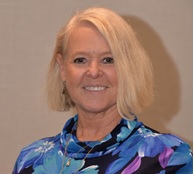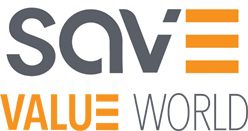By Renee Hoekstra, CVS – President, SAVE International

Another month has flown by and we’re starting to venture into the beginning of Fall. I know we’re not there yet, but we’re getting closer to the changing of leaves, cooler temperatures and hopefully a continued reduction in the COVID virus. I’m hoping all of our members and your families are staying healthy, spending more time with our loved ones, staying active and still engaging in our new virtual environment.
I would like to spend a little time this month talking about the virtual environment and looking at many of the changes that are requiring our attention. I’m hoping that as you conduct your workshops you are all having conversations with your teams about how things are going. Lessons learned discussions are critical to ensure that we are still delivering the expected outcomes to our teams and our clients. I would like to share some of what we are learning so that we can continue to improve our approaches and our delivery of successful workshops.
Virtual Improvements
Pre-Workshop
- It’s important to spend more time preparing for a virtual workshop. In addition to our usual pre-workshop activities, there must be a focus on “how” the workshop will be delivered effectively. We have been finding challenges on a weekly basis as to which organizations can use what platforms. Make sure you ask this very important question.
- Collaborative workshop tools in the cloud provides another challenge. The use of Google, OneDrive, Share Point, etc. also have their limitations within organizations. Make sure you are working closely with your clients to understand before the workshop. In addition, it is important to determine the best ways to engage with your teams to get their input, allow them to be a part of developing FAST diagrams, etc.
- The two previous bullets are important, but more importantly is that you, as the facilitator, are comfortable in any of the environments that you choose to work within. Our outcomes rely on our overall ability to be an effective team leader, if we cannot work comfortably in the environment we choose, how can we be effective in ensuring a productive workshop with successful outcomes.
- In addition to the facilitator being comfortable, a pre-meeting should be held with the team prior to the workshop to run through the use of the platform and if you are using collaborative tools. Set the stage for the workshop by sending out virtual protocols to your team on how they need to behave, effective uses of their equipment, location, etc.
- Have your materials that you need for an effective workshop prepared and ready to be used. Fumbling around trying to find documents during your workshop can be frustrating for all.
Virtual Workshop
- Another important aspect is the length of your workshops. As I mentioned last month, the virtual environment is very stressful and can be taxing to both the facilitator and the teams. We must account for this by lengthening the overall workshop to allow us to shorten the actual work days. It is very difficult to maintain high energy levels and attention in a virtual environment in eight-hour days. You need to work closely with your clients and your teams to help them understand the benefits of this approach.
- As mentioned, structure your workshop with the team members and the end in mind. Find opportunities to still build that strong functioning team throughout your workshop. Even in a virtual environment, you can spend a little time getting to know each other, sharing personal information, creating a safe environment for all to participation and contribute, and making the workshop enjoyable. One lesson learned from speaking to many is that everyone is getting tired of the constant barrage of virtual meetings; we must make time to improve and eliminate the thoughts that our workshops are a drudgery, but something to be embraced.
- Flexibility is key to help team members be able to share their screens, review documents and site layouts while the team is brainstorming. Look for opportunities to help the team members be creative, as it is much easier to see what is being talked about. This may mean you have to not show your screen to capture the data, but it is more beneficial to the outcomes of the workshop.
- Remember our role as effective facilitators is to ensure workshop success. That means still being agile and flexible. I have recently had an opportunity to see this in action. I thought I knew what my approach for a specific evaluation activity would be during the pre-workshop, only to discover during the workshop, another approach would be more beneficial to achieve the desired outcomes. It meant using time after the conclusion of one day of the workshop to prepare for the next day to accommodate these changes. What we are finding is that although we say the workshop is only, for example 32 hours, the facilitators are having to spend much more time during the workshop. As clients, please be aware that your facilitators need more time to deliver you the outcomes of a 32-hour workshop, it takes us a minimum of one extra hour per day. This means, a 32-hour workshop needs 36 hours for the facilitator.
- It has been helpful to make sure you have time to do a dry-run for your outbrief or final presentation. These duties are shared between team members and in the virtual environment, it is helpful to allow presenters time to run through their slides and presentation to be prepared as well as determining the best flow.
- At the conclusion of your workshop, set aside 30 minutes to complete a process debrief to understand how things went. This would include a discussion of pre-workshop and workshop activities. This continues to provide us lessons learned to improve for the next workshop.
Post Workshop
- One of the great benefits we are seeing is that with everything going virtual and this includes documentation throughout the workshop, it is helping to provide more accurate and detailed reports. This is a great benefit for our clients. This is, however, dependent on the platform and the tools you are using within your workshop. Again, begin with the end in mind.
Virtual VMF 1 Training
As many of you may know, Value Methodology Fundamentals 1 (VMF 1) training is being offered virtually until the end of December 2020. We are excited about this and after auditing training during the initial offering, the SAVE International Board of Directors has provided our licensed instructors with updated requirements to ensure enhanced and integrated training. We are seeing some great successes in delivery but also in the testing outcomes. Congratulations to all of the instructors in helping to follow the protocols and deliver quality training.
Also, congratulations to all of you for your continued support of the Value Methodology. I believe virtual engagement is helping to Spread the Word in ways we had not imagined. Keep up the good work, be willing to work differently and always look to continuous improvement in everything you do.
